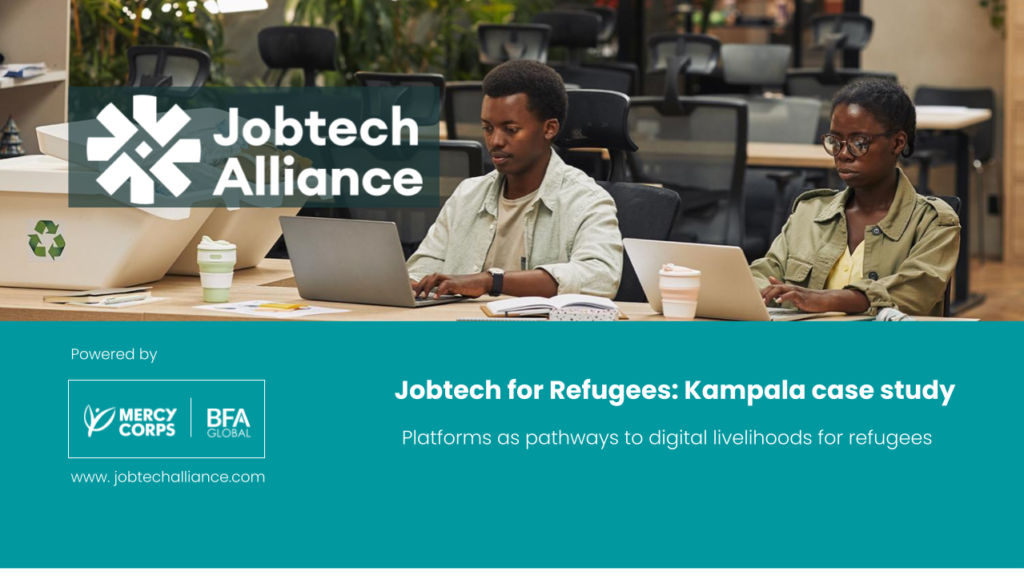By Michelle Hassan
Refugees face significant barriers to employment worldwide. In Uganda, with unemployment rates for refugee youth being more than three times higher than those for Ugandan youth. The disparity in labour market outcomes between refugees and host communities is significant, with refugees facing consistently worse outcomes. However, jobtech platforms and the gig economy provide opportunities for refugees, especially women, to access wider markets and generate income.
The Jobtech Alliance conducted research in Uganda, aiming to understand the dynamics of jobtech platforms in Uganda and their potential to create employment for refugees by investigating both the supply side (refugee labor supply) and demand side (platforms’ labor demand). The team interviewed 14 jobtech platforms to gain a high-level understanding of their business models, their current and future ability to hire refugees, the barriers they face when engaging with refugees, the profile of job seekers on platforms, and opportunities to enhance their ability to provide work to refugees. Additionally, the study involved interviews with 59 individuals (refugees and nationals) through face-to-face in-depth interviews and focus group discussions, as well as key informative interviews other actors.
Find the research here

The author is BFA Global’s lead at the Jobtech Alliance

0 Comments